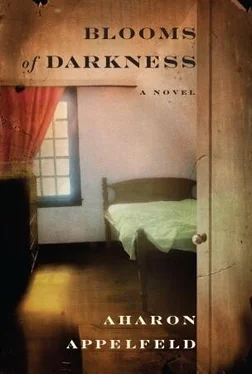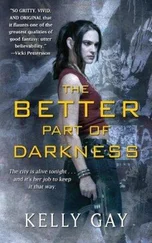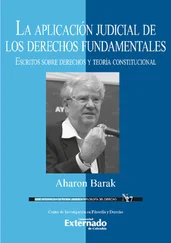The hours pass. The evening lights pour into the windows and change colors. The dangers that were lying in wait for Hugo seem to have withdrawn, and the pink room is not only pleasant but also protected. Great desire draws him to enter the wide, soft bed and cover himself with the quilt, but his instincts tell him that it is Mariana’s domain and forbidden to him.
Again he sees his house — the living room, his parents’ bedroom, and his room. The house was neither spacious nor fancy, but it was comfortable. Otto’s and Anna’s parents would come every Sunday. Hugo would entertain his friends in his room, serving them lemonade or fruit. On weekends his parents used to buy dates and figs. That exotic fruit would bring the distant, warm lands where they grew into the house.
During the visit coffee and cake would also be served. The fresh fragrances would fill the house. Everything was handled smoothly and pleasantly. After the visit a sudden melancholy would settle on those remaining. His parents would immerse themselves in reading, and Hugo would sit in his room and call up the faces of his guests in his memory.
• • •
The lights in the windows become gray and a small cloud descends on the bushes next to the fence. Hugo sees that they are lilac bushes, like in his yard, and happiness floods over him, as if he had seen someone he knew.
When he was five or six, he became sad and cried about the lilac flowers that suddenly withered. His mother, seeing his sorrow, promised him that in the spring they would blossom again, and everything would be as it was. He loved his mother’s optimism. She always knew how to make a gray color into a bright one, pleasant to the eye.
Hugo’s father, by contrast, did not know how to prettify situations, or how to reverse or change them. Beneath the veil of his silence dwelled a quiet skeptic. He didn’t spread gloom about him, but it was clear that he would not beautify reality. Hugo loved his father, but he was not drawn to his spirit. In his mother’s presence, he always felt elated. His mother sweetened every sorrow, as if to say, Why sink into melancholy when it’s possible to help people?
Now he sees his father again. For some reason it seems that he’s grown older since he was snatched away. His hair has turned gray, and many wrinkles have been plowed into his face. Hugo is sad that his father has suddenly changed, and, as his mother used to do, he says, This is an illusion, a thought that’s out of place. At the first opportunity it will go away, and everything will again be the way it was .
While he is exchanging one thought for another, the evening descends. From Mariana’s room the closet looks dark, and even the colorful gowns draped on hangers are enveloped with gravity. Hugo is sorry he has to be alone, far from his father and mother and his friends.
While he is mired in self-pity, Mariana appears. She is wearing the same dress she wore in the afternoon, but now she is gayer, her lips are red, and her hair is done up, showing off her long neck.
“How is my young and darling friend?” she asks in a hoarse voice.
“I played chess with myself.” He rushes to apologize. “Too bad I don’t know how to play. I would gladly play with you.”
“I’ll teach you. It’s not so hard.”
“Mariana’s head is already blocked up. A head that doesn’t study gets blocked up. Since I finished school, I haven’t studied.”
“You can try.” Hugo speaks in his mother’s tone of voice.
“It would be a waste of time,” says Mariana, making a dismissive gesture with her hand.
The light in the room is dim. Nevertheless, he senses that Mariana has drunk too much and apparently forgotten that Hugo is a boy, calling him “my young and darling friend.” Now she suddenly changes her tone and says, “Honey, in a little while you’ll have to go into your closet.”
“I’m ready,” says Hugo, and holds on to the box in which the chess set is stored.
“Good night. Sweet dreams.”
“Do you perhaps have a lamp?” Hugo asks, forgetting that he is under the protection of strangers.
“A light!” She laughs. “In the closet, you mustn’t light a lamp. In the closet, you close your eyes and go to sleep. If only I could sleep at night.”
“Pardon me,” says Hugo.
“Why are you asking to be pardoned?”
“Because I asked for a lamp.”
“You don’t need to beg pardon for little things like that. Come over to me and I’ll give you a good-night kiss.” Mariana kneels down and Hugo approaches her. She hugs him fully against her breasts and kisses his face and lips.
The smell of brandy strikes him.
“Don’t I get a kiss?”
Hugo kisses her cheek.
“That’s not how you kiss. You kiss hard.” Hugo holds her face again and kisses her. “I’ll have to teach you how to kiss,” she says, and closes the closet door.
Hugo stands there as though he’d been struck: he has never known contact like that.
The transition from Mariana’s room to the closet is an uprooting from a world full of colors to a world of darkness laden with the smell of sheepskins. He has already gotten slightly used to the smell, but not to the darkness. When Mariana locks the closet door, he feels more heavily stifled. When the suffocating feeling grows stronger, he rises to his feet and stands near the cracks.
In daylight hours Hugo can see the meadows where horses and cows graze, the gray fields, and two houses covered in vines. He has already seen children carrying schoolbags, on their way to school. How strange — all the children are going to school, and only I am forbidden to study. Why was that punishment imposed on me?
Because I’m a Jew, Hugo answers himself.
Why are we Jews punished? he asks again.
At home they didn’t talk about it. Once he had asked his mother how people knew who was a Jew and who wasn’t.
His mother answered simply: “We don’t differentiate between Jews and non-Jews.”
“Why are they kicking out the Jews?”
“It’s a misunderstanding.”
That incomprehensible answer stuck in Hugo’s mind, and he tried to understand where that misunderstanding lay, or who had caused it.
“Is it the Jews’ fault?” he asked once.
“You mustn’t speak in generalizations,” his mother answered softly.
Ever since Hugo could remember, he had tried to take sentences apart and understand words. Those efforts brought him no joy. His father encouraged him to think in an orderly way. His mother, by contrast, taught him to blend into whatever was happening and not to ask unnecessary questions, because not every question has an answer. You have to greet people warmly and not seek a reward for every deed.
“Hugo, you have to be generous. A generous person isn’t miserable.” That was his mother’s great rule, and she lived by it. In the pharmacy, poor people received medicine without paying, but his mother wasn’t satisfied with that. She helped poor people on her own. She would visit them in their homes and bring them a hot meal or some cash. To Mariana she used to bring fresh food and warm clothing.
Not only poor people came to the pharmacy, but also the mentally ill, petty thieves, and even criminals. The pharmacy had been surrounded more than once by policemen and detectives. Hugo’s parents were united in the opinion that if a person comes for medicine, you shouldn’t examine him too closely. Several times they had been accused of helping lawbreakers. His mother kept saying, “We aren’t saints, but we can’t ignore people in need.”
Hugo wraps himself in the sheepskins, and it seems to him that he will fall asleep right away. But that good sleep, which he already felt at his fingertips, withdraws and leaves him awake in the empty, silent space. Again he sees the way he got here. His mother is carrying the suitcase in one hand and the knapsack in the other. The knapsack is heavy, and it is too hard for Hugo to carry it.
Читать дальше












